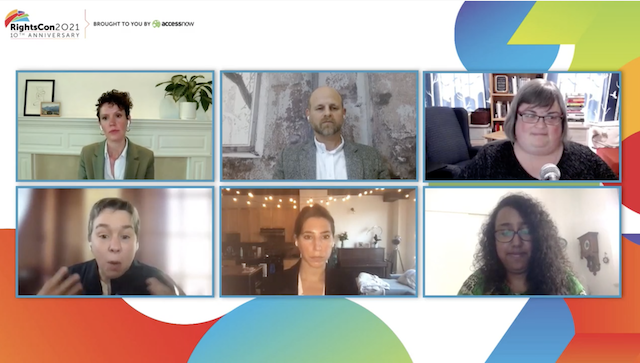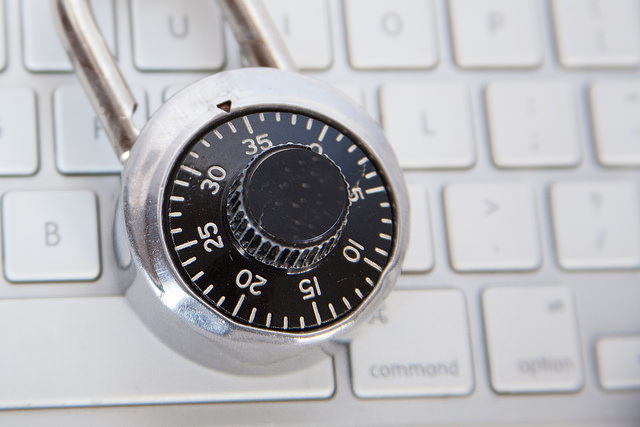Safeguarding digital civic space
Digital rights are a top priority to rebuild civic space amid recovery from the Covid-19 pandemic. This latest statement from the United Nations Special Procedures came out just as the RightsCon celebrated its 10th anniversary last week. A fireside chat discussion covered “Protecting digital civic space: the role of technology in supporting democracy.” An expert panel of seven with civil society, government and tech industry discussed the challenges and opportunities for the online activities of civil society, and the roles of states, the international community, and the tech industry in promoting and safeguarding digital civic space. What I found significant are the points raised by Brett Solomon, Access Now executive director; Miranda Sissons, director of human rights at Facebook and Jessica Ashooh, director of policy at Reddit.
Sissons says they have worked hard in combating Covid-related misinformation and supporting accurate health information. In human rights policy, they have “explicitly recognized the risk faced by human rights defenders and explicitly seek to support them.” Such policy sets out the human rights standards Facebook would strive to respect as defined in international law, including the UN Guiding Principles on Business and Human Rights. A very recent overview report seeks to protect activists and human rights defenders from incorrect content moderation decisions and expanded access to remedy through the oversight board. It introduced a fund to assist human rights defenders facing critical threats and support new digital security efforts.
Facebook could learn a lot about safe digital spaces from Reddit, a smaller company just starting to develop a global footprint. Ashooh describes the structure of the Reddit platform as democratic because the unit of engagement is fundamentally the community, rather than the individual user. The users themselves, rather than the centralized corporate entity, carried out more than 99 percent of all content moderation decisions. Focus is on preserving Reddit as a place for safe, authentic community-centered conversation. This means defending their communities against state forces that seek to constrict them. The scrutiny of every government takedown request considers international human rights principles and norms. The system of self-governance is highly effective in addressing these concerns. To marginalize violent and bad voices, they try to ensure the volume of certain views on Reddit is proportionate to the number of people who hold those views. Loud trolls or people with an agenda should not be able to hijack an entire community conversation. Identifying suspicious behavioral signals rather than seeking to collect and verify users’ personal data is being done. “It would be helpful to have a coalition of democratic countries setting and following norms about human rights and civic participation in the digital space in a way that sets an unequivocal example against authoritarianism,” Ashooh concluded.

Solomon of Access Now outlined a 15-point agenda for the government to put in place if it is to ensure technology policy supports and enables democracy rather than undermine it.
1. Get the whole population online, especially the most marginalized.
2. Protect encryption rather than undermine it.
3. Legislate enforceable and robust data protection laws.
4. Make multistakeholderism real by consulting with digital civil society.
5. Join the Freedom Online Coalition.
6. Be consistent at home and abroad on digital rights practices and policy.
7. Ban facial recognition and all biometric surveillance in publicly accessible spaces.
8. Ensure content regulation by states and moderation by companies is rights respecting.
9. Don’t spy on citizens nor deploy surveillance infrastructure against marginalized communities.
10. Resist moves toward so-called data and digital sovereignty, which enable authoritarianism.
11. Stop unlawfully requesting user data from tech companies.
12. Protect the right to freedom of assembly and peaceful protest online.
13. Ensure Covid tracing apps, vaccine passports, and other pandemic responses don’t harm privacy and freedom of movement in the meantime.
14. Train your judges, policymakers and legislators in digital rights.
15. #KeepItOn. This coalition of over 240 organizations from 105 countries around the world has been fighting internet shutdowns.
More discussion about the heightened role of technology and the need to center digital rights in the pandemic recovery are available at accessnow.org.
First published at Sunday Business & IT on June 13, 2021.



